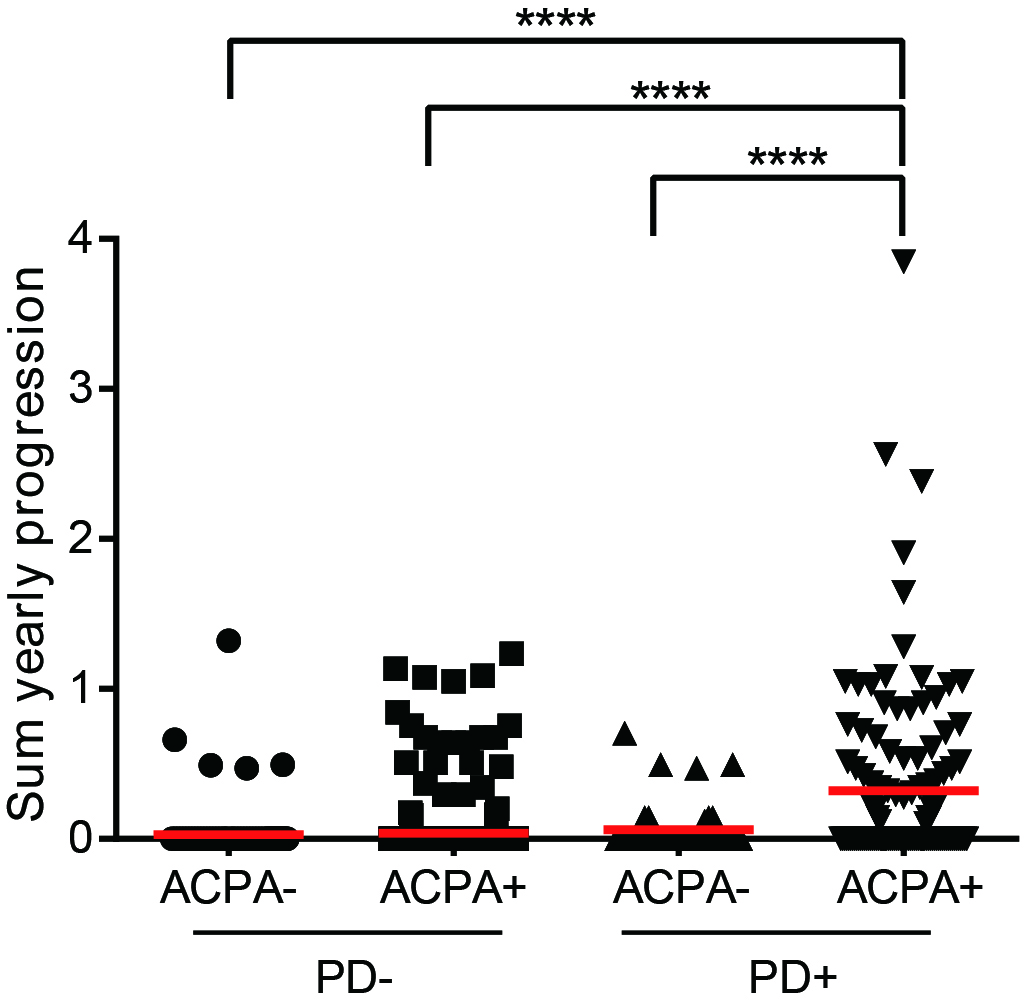Session Information
Session Type: Abstract Submissions (ACR)
Background/Purpose , Categorizing RA patients who require intensive treatments is highly warranted to optimize the therapy and to avoid overtreatments. We here evaluated the use of predicting joint destruction with joint power Doppler (PD) signal in musculoskeletal ultrasonography (MSUS).
Methods , We performed a retrospective study of 331 RA patients (female n = 280 and male n = 51, mean age 57.9 ± 13.2 y.o) who underwent MSUS from 2002 to 2012. Correlations of progression of joint destructions in 1,308 2nd and 3rd MCP joints with analysis of PD signals of the same joints, clinical findings, age, and disease duration at the study entry, gender, observation period, ACPA, and RF were analyzed in patient- and joint-based fashions, using univariate and multivariate logistic regression analyses and generalized linear mixed model.
Results , Patients’ characteristics were as follows: mean disease duration 5.7 ± 7.5 years, observation period 4.6 ± 2.6 years, RF positivity 79.9%, ACPA positivity 76.4%. PD positive 2nd and 3rd joints showed higher rate of joint destruction, especially in ACPA positive patients. Moreover, PD positive joints in ACPA positive patients showed joint destruction even in joints without swelling. Multivariate analysis determined PD, SJ, observation period, and ACPA as independent risks for joint destruction.
Conclusion , PD, SJ, and ACPA are independent predictors for the joint destruction of 2nd and 3rd MCPs in RA. Progression of joint destruction was maximal in PD positive joints in ACPA positive patients, raising the possibility that RA patients are categorized by MSUS findings.
Disclosure:
Y. Kirino,
None;
M. Hama,
None;
K. Minegishi-Takase,
None;
Y. Kunishita,
None;
D. Kishimoto,
None;
R. Yoshimi,
None;
Y. Asami,
None;
A. Ihata,
Janssen Pharmaceutica Product, L.P.,
2,
Astellas,
2,
Eisai,
2,
Santen,
2,
Abbvie,
2,
Bristol-Myers Squibb,
2,
Kaken,
2,
Chugai,
2,
TAP Pharmaceuticals Inc.,
2;
S. Ohno,
None;
A. Ueda,
None;
M. Takeno,
None;
I. Yoshiaki,
None.
« Back to 2014 ACR/ARHP Annual Meeting
ACR Meeting Abstracts - https://acrabstracts.org/abstract/combination-with-joint-power-doppler-signals-with-anti-citrullinated-peptide-antibody-predicts-joint-destruction-in-rheumatoid-arthritis/

